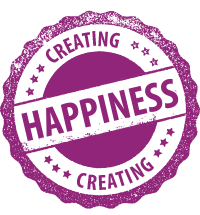It is absolutely normal to long for emotional support in a romantic relationship. It is actually one of the telltale signs that you are in a healthy partnership, when emotional support is present in a reciprocal way, both given and received.
Most people’s life, like my own, is enhanced when they are in a fulfilling and loving relationship. They feel more alive, and it adds extra sparkle. At the same time, when the longing for emotional support turns into an emotional dependency, it can lead to toxic relationship dynamics which over time have the power to destroy a relationship.
The red flags indicating that emotional dependence is present, are the following:
- The dependent person has a constant fear of abandonment,
- Feels insecure and anxious,
- Has an always-present fear of rejection,
- Has the incessant need for reassurance,
- Sees true happiness as dependent on their romantic partner,
- Does not know how to meet their emotional needs by themselves,
- Sometimes even sees their life not worth living without their partner.
In my clinical experience, clients who struggle with emotional dependence often have attachment wounds, and their needs have not been met sufficiently growing up. Frequently, they have experienced childhood trauma or child abuse. Nobody helped them to process their pain nor taught them how to deal with their emotions productively. They are frequently unaware that it is their responsibility to care for their emotional needs, and they don’t have the tools to do so productively.
Pervasive and debilitating emotional dependence can indicate the presence of personality disorders. A person with Borderline Personality Disorder has an obsessive fear of abandonment, struggles with emotion regulation, sees their partner as an object to fulfil their needs, and suffers from chronic feelings of emptiness.
A person with Dependent Personality Disorder fears separation, feels uncomfortable and helpless when alone and has an excessive need to be taken care of. This leads to submissive and clinging behaviour. Right after a close relationship ends, the individual seeks another as a source of care and support.
You may recognize similar behaviour in yourself, which has resulted in considerable suffering. If so, I suggest you contact a mental health professional who can help you better understand these patterns.
They can provide you with tools to achieve a healthy level of emotional dependence and create a better quality of life overall. It is possible!
Are you fed up and ready to step out of emotional dependency? This is how you do it:
Get To Know Your Inner Landscape
You can only change inner dynamics if you are aware of them.
A person who is unaware will repeat their patterns over and over. For them, it’s a never-ending Groundhog Day without any change possible, which is awful!
That’s why I think insight and awareness are some of the great gifts of therapy; they are prerequisites for possible positive change.
Slow down regularly, spend some time alone and become a compassionate, non-judgmental observer of your internal experience. Notice when intense feelings get triggered and how you react. Notice what kind of thoughts accompany those feelings. Be curious and think about where you have been taught to react that way.
Consider if your current behaviour served a good purpose in the past (like, for example, survival!) and perhaps it is no longer the best response today. Brainstorm if there would be better ways of responding at present.
A good starting point might be to allocate 10 minutes daily, ideally at the same time. Become reflective and curious. You can journal your findings using pen and paper, save them as audio recordings, or simply put them in your phone notes. Over time, you will train your brain to become more attentive to your inner world; because what we focus on expands.
You Cannot Give Yourself Too Much Kindness
In my experience, people stuck in emotional dependence tend to be very hard on themselves. They have toxic inner self-talk, and their self-esteem is often low. It’s time to stop with that self-inflicted emotional cruelty!
When you notice your inner critic arise, slow it down, acknowledge the thoughts but don’t get stuck in them (check out my post on Cognitive Defusion to learn how to do that). Be aware that your thoughts are not the truth. Frequently, they are simply the voice of a primary caregiver internalised or a way you have learned to make sense of your world. This is the time when kindness is needed! I invite you to have compassion for yourself. I can assure you, you deserve it.
Take some deep breaths and acknowledge that you are suffering. You might even want to put your hand gently on your heart saying, “This is hard, right now I am in pain and I choose to be there for myself. I am meeting myself with kindness”. Imagine warmth and kindness flowing from your hand towards all the toxic thoughts and painful emotions in your body. Allow them to be penetrated and enveloped with kindness. This is meeting your inner broken child like a loving, kind friend.
Take Your Needs Seriously And Be There For Yourself
The irony of wanting to be less “needy” is that the solution lies in recognizing that your needs are very important and won’t go away if you ignore them. Emotional dependency is often the result of waiting for somebody else to meet your needs and neglecting them yourself.
To work towards emotional health, it is key that you understand that you are responsible for meeting your own emotional needs. If another person is chipping in and helping you with that, it is a bonus, but not what you can rely on.
Say your partner has not met your emotional needs lately. You feel unimportant, lonely, jealous, or unloved. Instead of seeking reassurance from them, I encourage you to look at the situation from another perspective. That is, take ownership of your needs and ask yourself, how could you be there for yourself and meet your emotional needs right now? How could you show up for yourself in a caring and supportive way?
This will be different for everybody. For me, what would work is to start off with becoming a compassionate observer of my inner struggle and offer myself kindness. I would say something like, “Love, this is painful, this is a difficult situation, I am there for you, we got this! You are stronger and more resourceful than you think!” Then I might think about an action that would make me feel better and show to myself that I can be my ally and take loving care of my emotional needs. I might brew a cup of my favourite tea, book a massage, or call up a friend to hang out.
Regularly Calm Yourself Down
If you suffer from emotional dependency, you most likely spend too much time in your cerebral fight or flight center; that means your reptilian brain is overactive. The dependent person will frequently feel on edge, waiting for the next shoe to drop, have muscle tension, and suffer from constant feelings of anxiety and dread.
Your nervous system deserves a break!
To feel better, you need to regularly activate your parasympathetic nervous system – which is your internal relaxation system. This is done by applying calming techniques and practising mindfulness daily. Practices like that stimulate the vagus nerve, which tells your body it’s time to relax and de-stress.
The quickest way to stimulate the vagus nerve I know of is to change your breathing pattern, slow it down and start breathing from your diaphragm. Take a moment, and experience right now what a positive change a deep breathing pattern can make right now!
Simply take ten deep breaths. Breath in through your nose, counting to four, and out through your mouth, counting to eight. When you breathe in, visualise yourself breathing in white light. As you exhale, visualise letting go of all the tension and stress accumulated in your body throughout the day. How did that feel?
Don’t Put All Your Eggs In One Basket
Next to your romantic relationship, ensure that you nurture your friendships and family bonds. Maintain a healthy balance that allows you to receive validation and affirmation from others than your romantic partner. So, when your partner fails to meet your needs from time to time – which is normal and even happens even in the strongest relationships – it won’t hurt too much. This balanced approach will aid with developing a healthy level of dependence.
Expecting all of your emotional needs to be met by your romantic partner is an unrealistic demand, which puts too much pressure on them. Over time, that can become suffocating and lead to the very thing you want to avoid most: for them to exit the relationship because your demands on them were simply too much. Spending time apart, or with other friends and family members, is healthy. It can help keep the relationship fresh, create longing and rekindle the passion with your partner.
Stop The Undermining Self-Talk And The Harshness
If you suffer from emotional dependence, you might frequently meet yourself harshly and have negative self-talk. This contributes to you being stuck in this counterproductive loop and creates an increasing feeling of anxiety and sadness.
A prerequisite for change is to meet yourself with kindness and acceptance. Inner cruelty will only keep you stuck and create unpleasant feelings!
Self-harshness is best viewed as “inner child abuse”, a form of emotional sadism that has gone unnoticed in the absence of your own compassionate oversight.
Imagine meeting a lost child on the street. The child is scared, lonely, upset, or helpless in some other way. Should I ignore the child or tell them to “Shut up!”, tell them, “Don’t feel like that, that’s stupid!”? Or, would it be more helpful if I would listen to that child, try to understand it, offer it a hug and comfort, or some kind words and encouragement?
The first step to making friends with yourself is to be able to express and listen to your hurt, helpless inner child, and to show up as a kind and encouraging friend. Positive self-talk and self-compassion will be key ingredients in your healing process.
Create Your Best Possible Life Independent From Your Relationship
Let your main focus be your own life, and how to make it more vibrant and fulfilling for yourself! Explore how your life can be a positive force in this world. This life is a gift. You might as well make it count and squeeze as much joy and fulfilment out of it as you can.
There is no life without pain and disappointment for any of us, “Sh*t happens!”. Focus on what you have control over in your life! You can do so much to make your life a good one, increase emotional health and overall fulfilment.
Here are some ideas:
- Commit to working on yourself, getting to know and extend healing and love to your inner broken child
- Follow your passion, find a job that aligns with your values and lets you work out of your strengths
- Slow down regularly and choose a positive, constructive outlook
- Help others, research in the field of positive psychology has shown that altruism improves our own sense of well-being
- Practice gratitude which will help you focus on all that is already good and working in your life
- Move your body often and give it food that allows it to prosper
- Spend regular time with people you like and treat you well. So much of your happiness is in your own hands!
Focusing on your agency in meeting your own emotional needs will contribute to your mental health and lower emotional dependence.
The patterns of emotional dependency can wreak havoc in a relationship and lead to a continuous cycle of painful feelings for both the dependent person and their partner.
Unattended, it is toxic and will slowly, but surely kill the relationship. However, the good news is that all of that can be changed, healing is in your hands!
These patterns can be complex and often have been there since childhood. In some cases, it can be enough to be introspective and talk it over with a person you trust. In most cases, however, it will be beneficial to work with a mental health provider.
In my clinical experience, Acceptance and Commitment Therapy (ACT) and Dialectical Behaviour Therapy (DBT) are both effective therapeutic approaches in facilitating healing from emotional dependence.
I wish you all the best on your journey towards emotional health and internal freedom. I am rooting for you!

This post is part of the blog series "Creating Happiness", your inspiration to promote positive change in your life.
Do you like Daniela's posts? Subscribe to her blog series:
ABOUT THE AUTHOR
Ms Daniela Beer-Becker, Psychologist
Daniela is a regular contributor to the Blake Psychology blog and author of the "Creating Happiness" series.
MORE POSTS IN THE SERIES
















